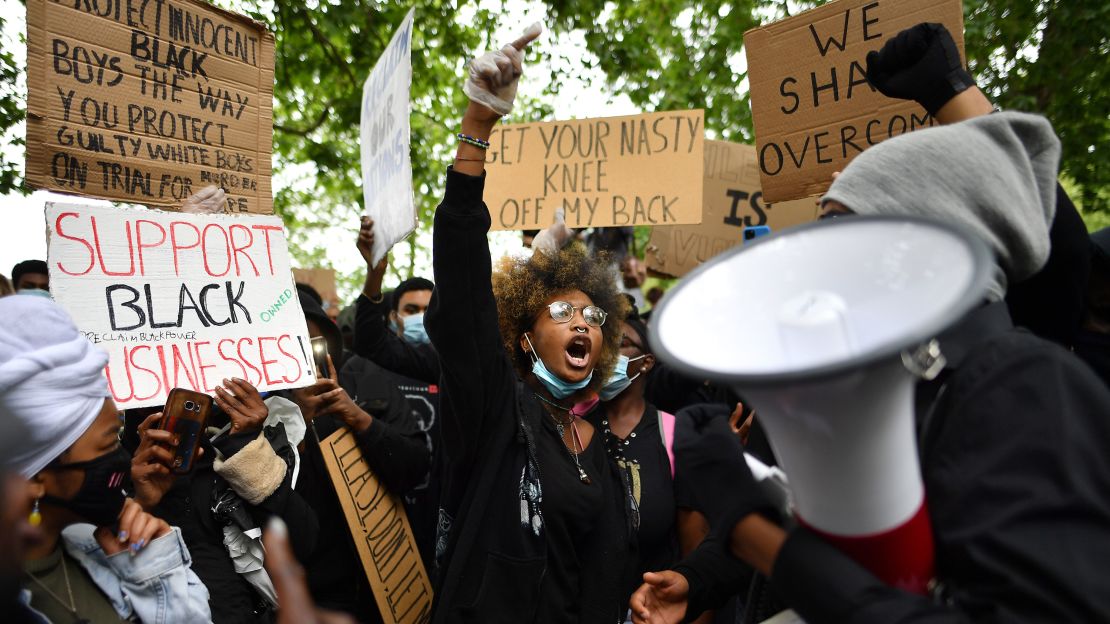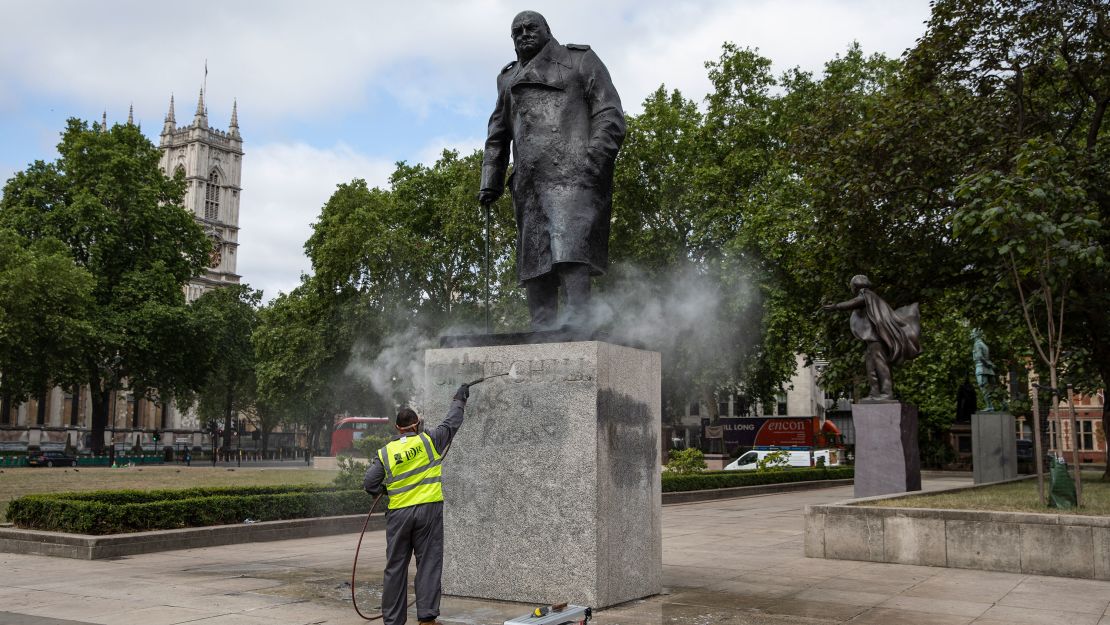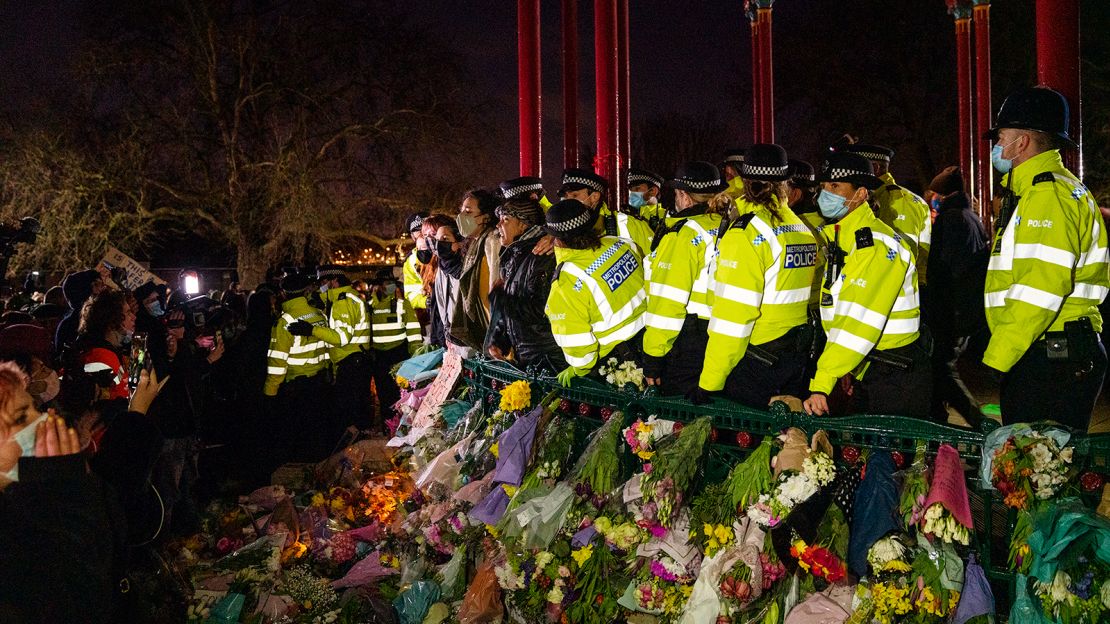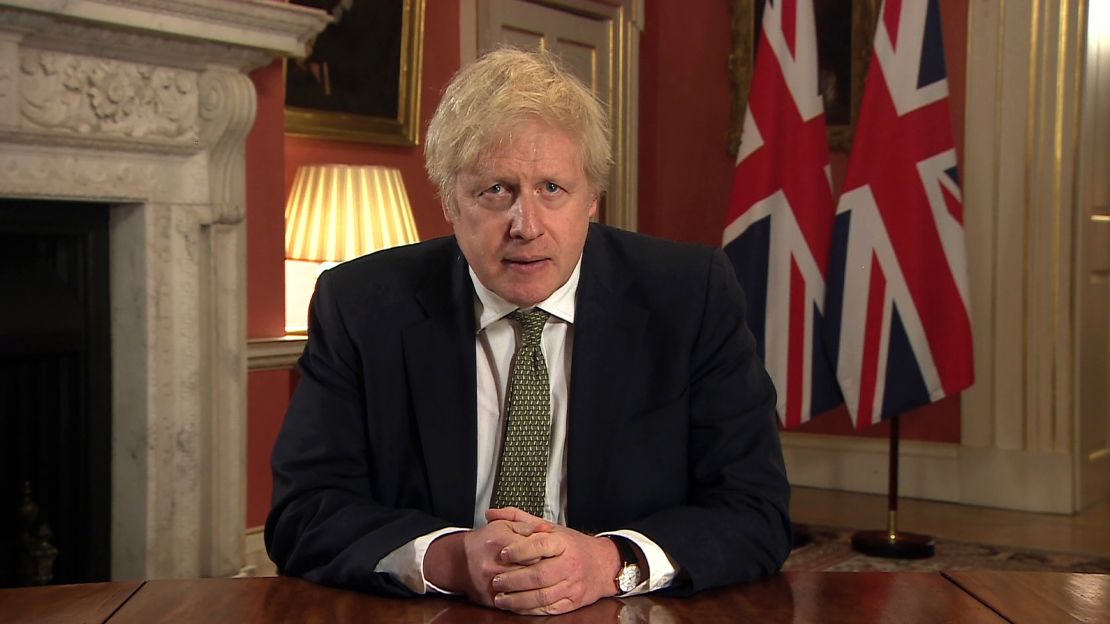“Two basic rules of government: Never look into anything you don’t have to. And never set up an inquiry unless you know in advance what its findings will be.” The words are from “Yes Minister,” a 1980s television satire about the dysfunction of British politics, but they could equally apply to the Westminster of today.
Sir Humphrey Appleby, the amoral civil servant who served his lazy minister in the long-running BBC series, might have allowed himself a wry smile this week on the release of a report on racial inequalities that, despite coming from an independent panel, had strong echos of the UK government’s stated view of the issue. Like many of Sir Humphrey’s fictional schemes though, this one risks inflaming the very problems that it purports to address.
The report, released on March 31 by the Commission on Race and Ethnic Disparities, was commissioned last fall in the aftermath of the pent-up frustrations of Black Lives Matter (BLM) protests and their supporters – who demanded the government seriously consider and address the racial inequalities that still permeate British society.
The report’s staggered release began with a summary of the findings that graced the nation’s front pages on Wednesday morning. It stated the report found no evidence to support “the well-meaning ‘idealism’ of many young people who claim the country is still institutionally racist.” In fact, the successes of some of the UK’s ethnic minority population should be “regarded as a model for other white-majority countries.”
The reaction to what has been described as a spin operation was furious. It was called “government-level gaslighting” by sections of the press and the public and the damage was done even before the report was officially released later that morning.
Once published, there was plenty more for the critics to get their teeth into. The report was accused of putting a positive spin on slavery and empire with its incendiary suggestion that children be taught about the “Caribbean experience which speaks to the slave period not only being about profit and suffering but how culturally African people transformed themselves into a re-modelled African/Britain.”

‘Shoddy piece of work’
Policy experts also noticed glaring holes in its analysis. Disparities – such as why ethnic minorities were disproportionately dying of Covid-19 as well as labor market discrimination – were explained away by other factors, such as geography, living conditions and social income, while ignoring the role race played in determining these factors.
“It was pretty universal from everyone credible in these areas, who all said this is a shoddy piece of work,” said Jonathan Portes, a public policy professor at London’s King’s College and chief economist at the Cabinet Office between 2008 and 2011. “What they are trying to do is justify a particular rhetoric about racism in the UK,” he told CNN.
The report was politicized from the outset to play down legitimate concerns about racism and how to address it, say campaigners. “The whole structure of this commission was to fit in that worldview they had right at the beginning of the report,” said Simon Wolley, founding director of Operation Black Vote and chair of the government’s race disparity advisory unit July last year.
“The way it has been spun is policy-based evidence, not evidence-based policy,” Wolley added.
While the commission is independent to the government, experts said the report’s conclusions echoed the “war on woke” mindset by British Prime Minister Boris Johnson and his administration.
This included a December speech by Women and Equalities minister Liz Truss, who said tackling inequality should not be limited to “sex, race, and gender reassignment.” She complained that too much time was spent in her school during the 1980s talking “about racism and sexism” rather than “making sure everyone could read and write.” The following month, Housing Secretary Robert Jenrick launched legislation to protect historic statues, promising to protect monuments from “militants and woke worthies,” he wrote in the right-wing newspaper, the Daily Telegraph.
Only one statue – long the source of controversy – was toppled at the height of the BLM protests; those accused of perpetrating its downfall have been charged and will stand trial under existing legislation.
CNN has contacted Downing Street for comment.

No accountability
Another reason the report has prompted so much criticism is the growing feeling that the government is marking its own homework. Its release came days after a report by the UK’s police watchdog, Her Majesty’s Inspectorate of Constabulary (HMIC), absolved the Metropolitan Police of any wrongdoing in its perceived heavy-handed dispersal of a London vigil for murdered woman Sarah Everard.
The non-profit Index on Censorship, which defends free expression around the world, questioned the independence of the watchdog the following day, releasing excerpts from a whistleblower complaint that questioned the impartiality and independence of HMIC.
The whistleblower complaint related to a report HMIC released in early March backing the Home Office’s proposal to clamp down on protests via new legislation, later known as the Police, Crime, Sentencing and Courts Bill. HMIC’s report was commissioned by Home Secretary Priti Patel following last year’s BLM and Extinction Rebellion climate change protests, HMIC wrote.
But the HMIC whistleblower, Alice O’Keefe, whom the Index on Censorship is supporting, “claimed the inspectorate decided to back the government’s proposals before fieldwork [had] been completed,” according to a press release. It added that O’Keefe feared the HMIC report “may have contributed to the crackdown on the vigil for Sarah Everard on Clapham Common in south London.”

“It is absolutely essential that a government watchdog… is seen to be independent and impartial,” said Martin Bright, editor at Index on Censorship. “It is of serious public concern if it reached conclusions convenient to ministers in advance of seeing all the evidence, as the whistleblower Alice O’Keefe suggests,” he added. CNN has reached out to HMIC for comment.
Even in cases where independent bodies do produce findings critical of the government, they are regularly brushed under the carpet. The most prominent case relates to Home Secretary Patel and allegations over her treatment of civil servants. A Cabinet Office probe uncovered Patel breached the Ministerial Code for “behaviour that can be described as bullying,” independent adviser Alex Allen wrote in his findings last year.
Allen resigned after Johnson chose to defend Patel, saying he had “full confidence” in the home secretary – who later apologized for her behavior. Allen’s resignation indicated “a trend – a government that is indifferent to constitutional norms and conventions and which sees self-restraints as mere inconveniences to dismiss,” legal commentator David Allen Green wrote in his blog.
Social divisions
The storm is so far showing little sign of damaging the popularity of Johnson and his ruling Conservative party. It has enjoyed a lead in the polls for most of the past year despite its widely criticized pandemic response, which has seen 127,000 people die from Covid-19 in the United Kingdom.
The race report “was always going to provoke this kind of backlash. And presumably, that was part of the intention,” said Tim Bale, professor of politics at Queen Mary, University of London.
By ignoring the pleas of Black Lives Matter protesters, and playing into the culture wars debate, the government is appealing to its traditional conservative base and new working-class voters from northern England, many of whom ended their longstanding allegiance with the opposition Labour Party in the 2019 general election.
It also has some cut-through with older generations. Polling shows that more ethnic minority citizens agree that Britain is systemically racist compared to the White population. “White people under 35 say the answer is on balance ‘yes’ (Britain is systemically racist), and ethnic minorities over 55 think on balance ‘no’ (that Britain is not systemically racist),” Sunder Katwala, the director of British Future, a think tank specializing in integration and migration, told CNN.

Therefore, the denial of institutional racism would directly appeal to socially conservative “voters across the country who feel anxious about cultural change; feel defensive – in terms of their attitudes towards race; and feel unduly criticized by what the government has been calling the ‘woke warriors,’” Bale said.
The long-term risk with this approach though, is the further disenfranchisement of young British people, many of whom are suffering amid the pandemic-induced recession.
“A lot of young people, be it from an ethnic minority or from the white majority, feel very strongly about these issues and will remember this report and take it as a signal that Conservatives have no understanding of their values,” Bale said. It will also play into wider concerns that the party “does not get what they want on housing, benefits, education, and jobs – it perhaps does not bode that well [electorally] in the long term,” he said.
For the cynical Sir Humphrey of “Yes Minister,” a good inquiry was always one that kicked a problem into the long grass, while doing nothing to address the real issue. As for this report – it will likely do little to remove the drivers of protest. The longer inequalities are not recognized and addressed, the longer so-called independent bodies are perceived as partisan, the further Britain may be from a complete reckoning with its divisions.



